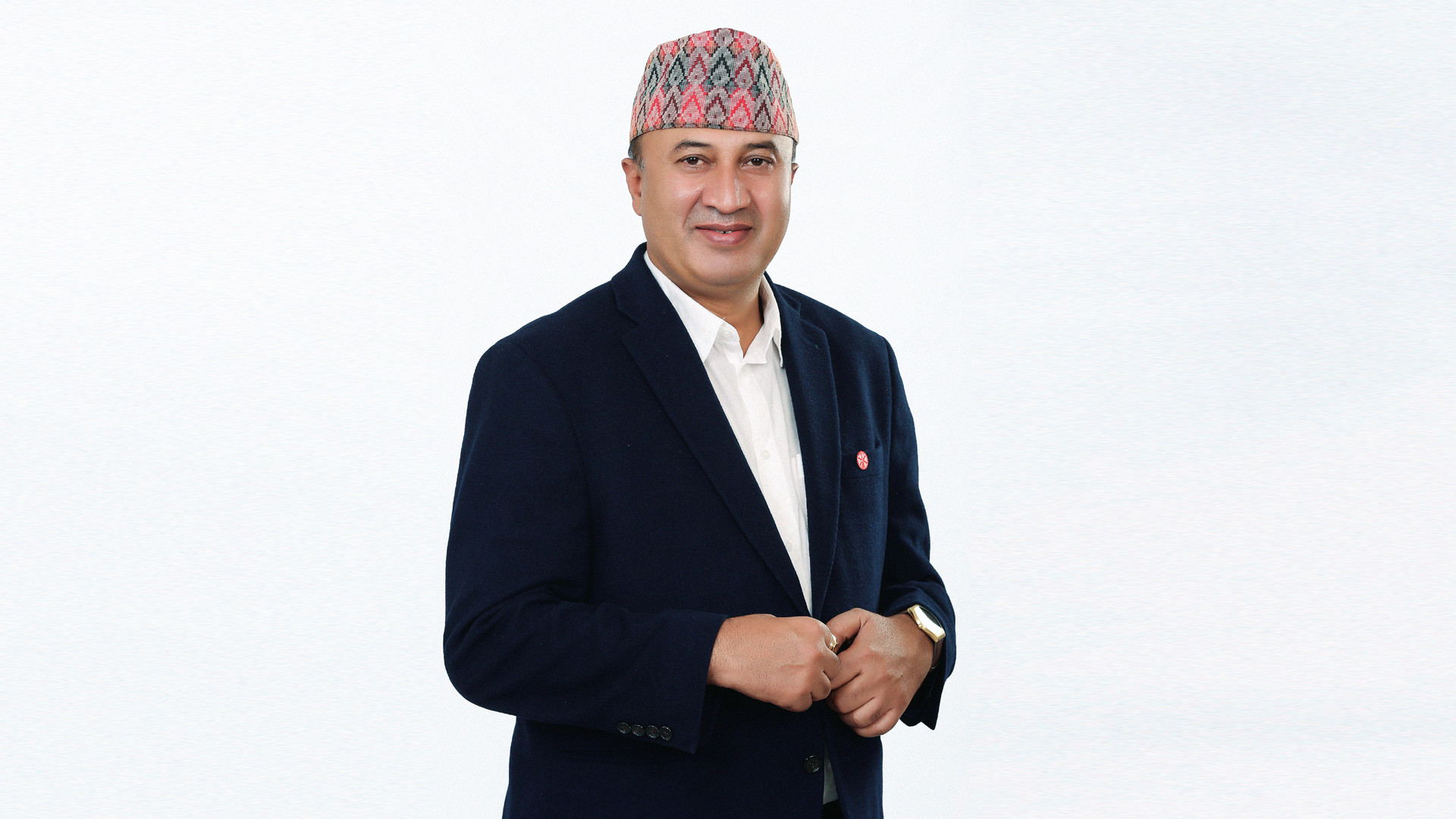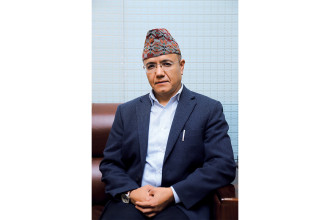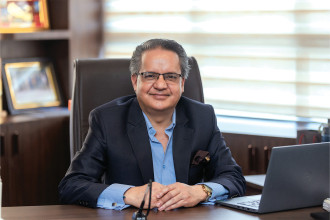
Hem Raj Dhakal
Vice President and Chairperson of Commodity Council, Federation of Nepalese Chambers of Commerce and Industry
A serial entrepreneur, Hemraj Dhakal, who is currently the Vice President and Chairman of Commodity Council at the Federation of Nepalese Chambers of Commerce and Industry (FNCCI), is involved in a wide array of businesses including trading, manufacturing and agriculture. He is also the Chairman of Heritage Group which manufactures various furniture goods and agricultural items.
In this edition of Business 360, we spoke to Dhakal about his views on leadership and the challenges of the private sector in Nepal. Excerpts:
How do you define a leader?
Over the years, I have come to understand that leadership comes from within. It is a game of knowledge, wisdom and intelligence. One should have the knowledge and implement it in an intelligent manner and for output, we must use our wisdom. A leader must be honest and true to their vision and goals. Their work and commitment and the combination of the three aspects above determine if they are a good leader.
What are the most essential qualities of a leader?
A leader must have the zeal to work and serve the community and the country. A leader must have the courage to bring about change and the ability to use their voice when it is needed. We are a developing country and have been striving to match the pace of the entire world; we need innovation and development. A leader must be willing to innovate and learn new things. And a leader must definitely have a vision and the ability to inspire a team to achieve that objective.
Who comes to your mind as ‘an ideal leader’?
I have always idolised late BP Koirala. He was committed towards the people of the country, he had a vision, and he went through a lot of struggles to bring democracy with the belief that everyone should get equal rights and opportunities.
If we look at the United States, I believe they have been able to dominate practically all spheres of development because of their presidents who were all visionary. They knew what was good for their country and worked with the sole motive of making their country recognised and respected.
Is leadership ‘in-born’ or ‘acquired’?
Leadership could, to some extent, be inborn but it is majorly acquired. Some people may have the quality of leadership by birth. It may be biological. However, as we gain experiences throughout our lives, we acquire qualities of leadership.
How can a leader prepare for the unknown?
Every problem has a solution and there is a saying that there is always an opportunity in problems and challenges. For example, after the pandemic, the healthcare system has become better. There are more medical labs now not only in the cities but in rural areas as well. Good, bad and unknown is the cycle of life. We have to be strong and rigid when tackling these. A leader should be able to see the light at the end of the tunnel when no one else can, and when you can do that, you will be able to deal with any kind of uncertainties.
How important is a team?
Teamwork is extremely important. In any sector, be it business, academics or politics, every organisation needs a proper team to function. Management is the driving force. I also believe women make better managers and they should be encouraged to take on leadership roles. A team functions best when the leader is democratic, transparent, honest, hardworking and inclusive.
Leadership in FNCCI
As per a recent report, the private sector has an 81% contribution to employment and 85% to the economy. We, at FNCCI, mainly look into facilitating the private sector. Our aim is to stabilise and improve the economy which translates into sustainable development.
Through my position at FNCCI, I nurture entrepreneurs, help those who need help in addressing their issues, lobby and advocate with the government, among others. We, as leaders of businesses, want to bring comprehensive laws that help all sectors of business and the general public.
Being the second biggest body after the government, we work at the policy level for the betterment of the private sector. Along with building the economy, we also focus on building a strong foundation for everyone where their leadership skills and development are given priority.
Personally, leadership for me is to be present in the smallest of things we do, from our everyday tasks to leading an organisation.
How do you view the increasing flight of youth to other countries for livelihood?
The country is landlocked and has some difficulties when it comes to trade and businesses, but what I often say is that our people have become mind-locked. The lack of self-determination and respect for the country has hampered the policies and their implementation. The feeling to serve the country to the best of our abilities is amiss at present.
Lack of ownership is the prime reason why the youths of the country who are skilled are moving abroad because when they want to do something here, they face hundreds of obstacles to reach their goal. I feel we have to bring more young people into politics and bureaucracy to change the outlook we have in our country. The old school and outdated people and their way of leading the country must change and it is only the youths who can bring about these changes. ![]()




-(1)-1752214965.jpg)